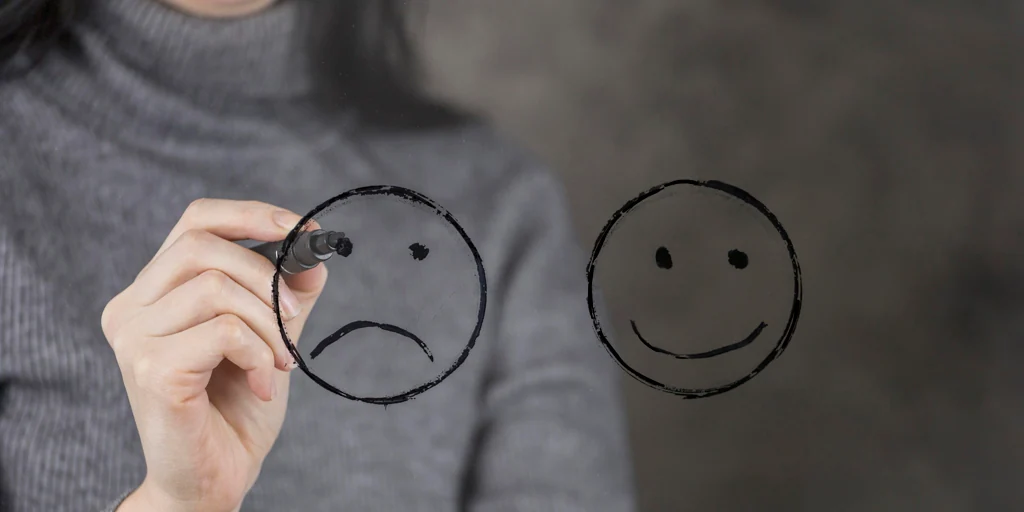he Emotional well-being It is an important part of overall well-being because it can impact our perspective on life, relationships and health… When you are emotionally healthy, you manage the different elements of your life and work with a variety of emotions, without losing control.
We are all more aware of this now, after living without leaving the house for months. A year later it aroused even more intense emotions in many people. But caring for your emotional well-being is always a good investment, in good times or bad.
Life presents you with events that challenge you, but when you know how to face these obstacles in a way… Flexible mindsetConfidence in your ability to overcome any circumstance is strengthened.
Tips for daily life
50% of college students have realized The need for psychological support For mental health problems. This is the basic conclusion of the recent study conducted by the Ministry of Universities in cooperation with the Ministry of Health, which reflects that 17% of students stated that they had received a prescription for tranquilizers, anxiolytics and obsessive-compulsive disorders. Antidepressants Or hypnotics.
These figures highlight the need to teach young people how to maintain optimal mental health and adopt beneficial mental routines that promote emotional and cognitive well-being.
“There are mental actions that are counterproductive and can negatively impact mental health. Rumination, or repeatedly worrying about the same unresolved issues, can increase anxiety and depression. This style of thinking is associated with higher brain activity in areas associated with self-criticism and fear, which may perpetuate the cycle of emotional discomfort,” explains Pablo Cesar García, Doctor of Neuroscience and Director of the Physiotherapy Degree at UNIE.
With the aim of avoiding this type of behavior and for young people to adopt guidance that enhances their emotional health, as well as making the most of their learning, the Director of the Physiotherapy Degree at UNIE explains some keys that can be applied on a daily basis:
1. Feed the mind positively. Activities such as meditation or mindfulness help strengthen brain activity associated with emotional regulation and decision making. Any activity that calms our nervous system and mind generates inner peace, which includes benefits such as avoiding skin changes, digestive and intestinal problems, or changes in the body’s performance.
2. Avoid overloading and planning. Having clear, achievable goals provides a sense of purpose and direction in life which increases motivation and personal satisfaction. Visualizing goals helps boost brain activity related to motivation and reward, thus promoting mental health. However, it is essential to be realistic with these expectations, because people who are highly demanding of themselves and strive for perfection can end up prioritizing achieving goals and forgetting to live every moment.
3. Expose yourself to new learning experiences. Carrying out creative activities contributes to the formation of new neural connections, strengthening the neural network and improving cognitive function.
4. Avoid excessive use of social networks. Excessive visual stimulation and lack of social interaction can reduce brain plasticity and affect attention and concentration. Furthermore, constant comparison with others and exposure to negative content can lead to dissatisfaction and low self-esteem in many people. Spending too much time in front of screens can also affect sleep and quality of rest, which directly affects mental health.
5. Get enough sleep. Respecting the sleep cycle with an average of 7 or 8 hours of rest per day, as well as sleeping at the same time every day, and avoiding interruptions, are key to increasing the number of our neurons and increasing emotional health.
The key is to educate the mind, but without becoming obsessed: “Trying to control your thoughts can end up generating stress and anxiety.” It has been widely proven that one cannot control the negative thoughts that come to one’s mind, and explain that these thoughts Part of an individual's personality causes people to be extra aroused,” says Pablo César García, Director of the Physiotherapy Degree at UNIE.
However, there are cases when you need more help to change habits, so you should not hesitate to go to a psychologist and, based on his knowledge, look for a way to find strategies that help promote emotional health.

“Social media evangelist. Student. Reader. Troublemaker. Typical introvert.”

:quality(85)/cloudfront-us-east-1.images.arcpublishing.com/infobae/TEQF6EONZRFGLLLDIDD4L2O4EE.jpg)

:quality(75)/cloudfront-us-east-1.images.arcpublishing.com/elcomercio/XU32LRAEZFDDPNVHLFU3CKVBYY.jpg)



More Stories
Venezuela ranks fourth in female leadership in science and technology in Latin America
In Portuguesa and Sucre they explore the wonderful world of science
The university court overturns the expulsion of two teachers and a chemical sciences student